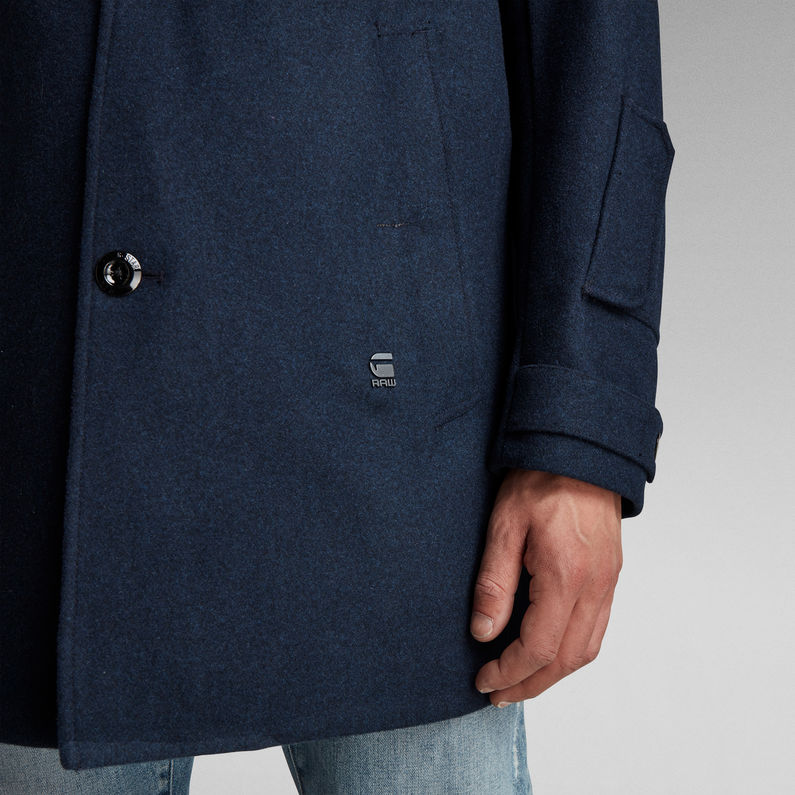Utility Wool Trench
AU$ 500
ColorMulti color
Model is 1.82m and is wearing a size M
(Chest 88cm).
This product is currently out of stock. Select your size and subscribe to get notified when your size is back in stock.
size
No stock available
Features
Features
Trenchcoat Utility Wool offers a reinforced collar that can be held upwards by the tab attached. Wear it high up or fold the tab to the side to create a regular flat collar. This coat features broad welt pockets with a hidden snap at the chest and waist. An adjustable tab at the wrist allows for a tighter fit. Just above, a flap pocket is added. This lined coat offers a button closure with an internal wind guard to block out the cold. An inner pocket and hanger loop are added for ease.
A-Line Fit
- Reinforced collar- tab with buttons for raised version
- Long sleeves- adjustable wrist - snap closure.
- Flap pocket at the lower arm - hidden snap closure
- Welt pockets at the chest and waist- hidden snap closure
- Inside: pocket and hanger loop
- Button closure

Material
Material
Covery Wool Recycled
This compact woven fabric is made from recycled wool combined with synthetic yarns to create a durable construction.
- Brushed, giving a soft touch
- 60% Wool (Recycled), 35% Polyester, 5% Other Fibres
- Recycled wool is made from post-consumer or post-industrial wool waste.
- By giving discarded resources a new life we save raw materials, water, chemicals and energy. Preventing further extraction of a non-renewable resource.
- Lining: 96% Polyester (Recycled), 4% Elastane
Color
sartho blue heatherWashing Instructions
Do not washDo not bleachDo not tumble dryLow temperature iron 110°CDry cleaning tetrachloride, normal processDo not iron print, trims and accessories, Iron inside out, Dry clean only
Art nr: d20639-b965-6370

Sustainability & Traceability
Sustainability & Traceability
Preferred Materials
- 60% Wool (Recycled) made from pre- consumer or post-consumer wool waste. By giving discarded resources a new life we save raw materials, water, chemicals and energy.
- 35% Polyester (Recycled) made from pre- or post-consumer plastic/polyester waste, of which PET bottles are the most common source. By giving discarded resources a new life we save raw materials, water, chemicals and energy.